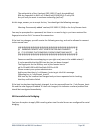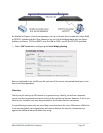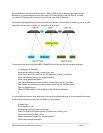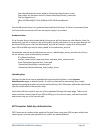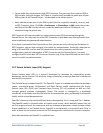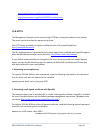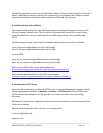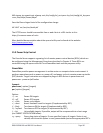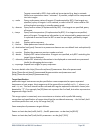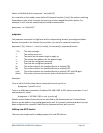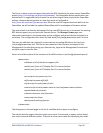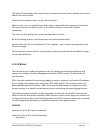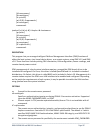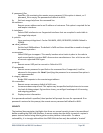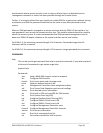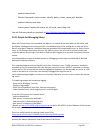
_____________________________________________________________________
B096-016 B096-048 and B092-016 User Manual Page 193
Targets connected to RPC's that could not be contacted (e.g. due to network
failure) are reported as status "unknown". If possible, output will be compressed
into host ranges.
-n, --node Query node power status of targets (if implemented by RPC). If no targets are
specified, query all targets. In this context, a node in the OFF state could be ON
at the plug but operating in standby power mode.
-b, --beacon Query beacon status (if implemented by RPC). If no targets are specified, query
all targets.
-t, --temp Query node temperature (if implemented by RPC). If no targets are specified,
query all targets. Temperature information is not interpreted by powerman and
is reported as received from the RPC on one line per target, prefixed by target
name.
-h, --help Display option summary.
-L, --license Show powerman license information.
-d, --destination host[:port] Connect to a powerman daemon on non-default host and optionally
port.
-V, --version Display the powerman version number and exit.
-D, --device Displays RPC status information. If targets are specified, only RPC's matching the
target list are displayed.
-T, --telemetry Causes RPC telemetry information to be displayed as commands are processed.
Useful for debugging device scripts.
-x, --exprange Expand host ranges in query responses.
For more details refer http://linux.die.net/man/1/powerman. Also refer powermand
(http://linux.die.net/man/1/powermand) documentation and powerman.conf
(http://linux.die.net/man/5/powerman.conf)
Target Specification
powerman target hostnames may be specified as comma-separated or space-separated
hostnames or host ranges. Host ranges are of the general form: prefix[n-m,l-k,...], where n < m
and l < k, etc., This form should not be confused with regular expression character classes (also
denoted by ''[]''). For example, foo[19] does not represent foo1 or foo9, but rather represents a
degenerate range: foo19.
This range syntax is meant only as a convenience on clusters with a prefix NN naming
convention and specification of ranges should not be considered necessary -- the list foo1,foo9
could be specified as such, or by the range foo[1,9].
Some examples of powerman targets follows.
Power on hosts bar,baz,foo01,foo02,...,foo05: powerman --on bar baz foo[01-05]
Power on hosts bar,foo7,foo9,foo10: powerman --on bar,foo[7,9-10]



